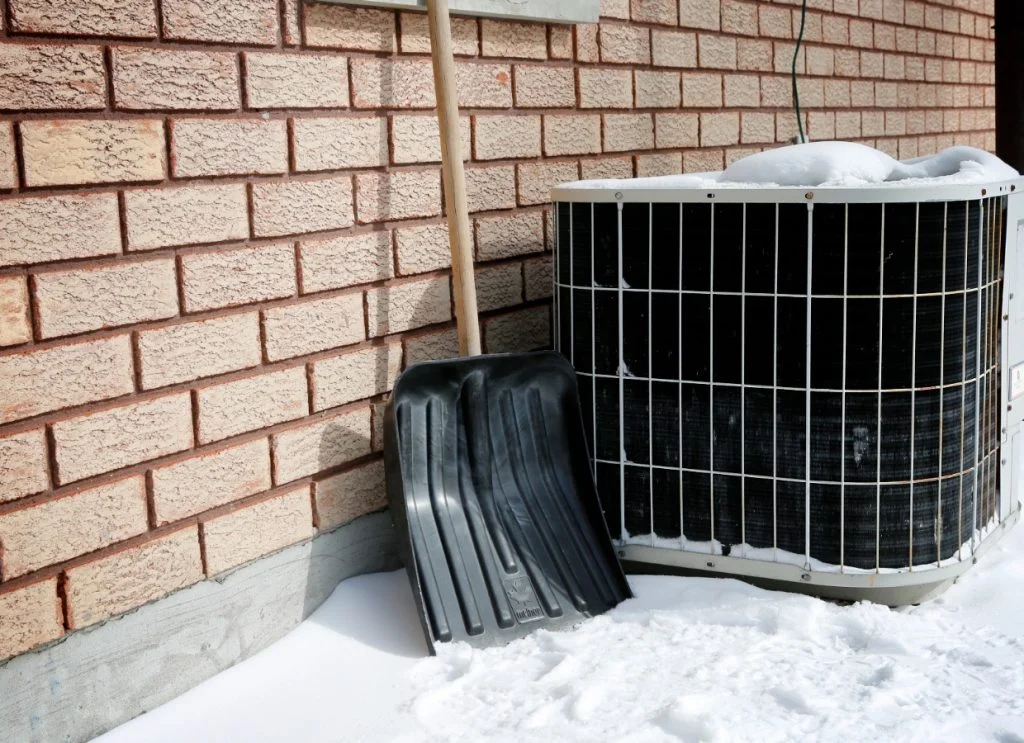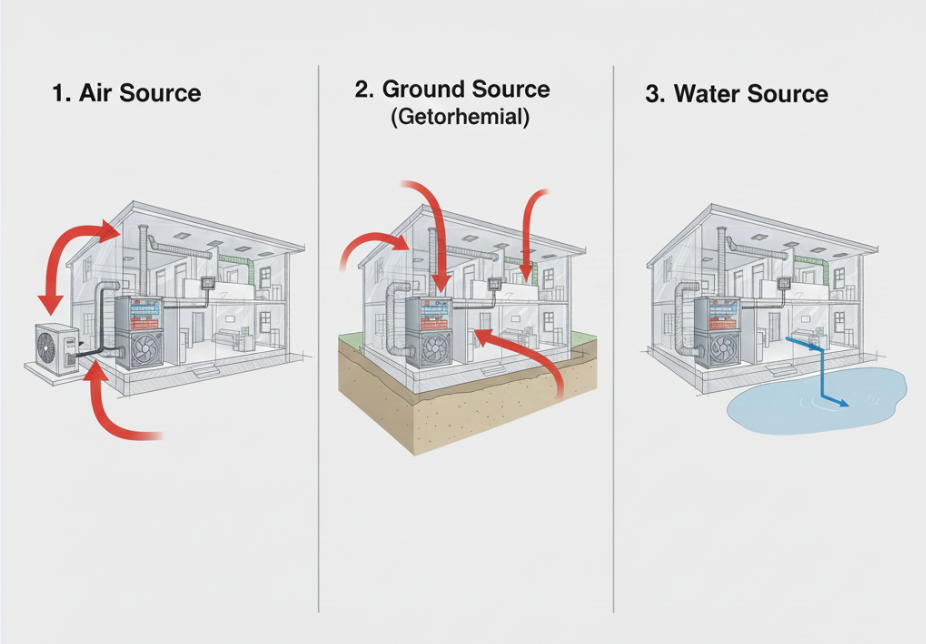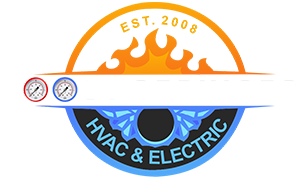As the chilly winds of winter begin to blow, homeowners and businesses alike turn their attention to efficient heating solutions. Heat pumps have emerged as a popular choice, providing both heating and cooling capabilities. However, misconceptions persist about their efficiency, especially during the colder months. Many homeowners still have questions about Heat Pumps Efficiency For Winter, which fuels common myths and confusion. In this article, we will explore the truths and myths surrounding heat pumps, debunking common misconceptions to help you make informed decisions for your home or business.

Table of Contents
Understanding Heat Pump Efficiency in Winter
How Heat Pumps Work: The Science Behind It
The operation of a heat pump is based on thermodynamics principles. A heat pump uses refrigerant cycles to absorb heat from the external environment and release it inside the building. This cycle involves the evaporation and condensation of the refrigerant, allowing heat to be absorbed and released efficiently. In winter, even cold air contains some heat energy, which the heat pump can capture and transfer indoors.
Types of Heat Pumps: Air Source, Ground Source, and More
There are different types of heat pumps, including air source, ground source (geothermal), and water source heat pumps. Air source heat pumps are the most common and extract heat from the air. Ground source heat pumps draw heat from the ground, offering higher efficiency in colder climates but at a higher installation cost. Water source heat pumps use water bodies as a heat source, providing another efficient option for specific settings.

The Role of Refrigerants in Heat Pumps
Refrigerants play a crucial role in the functioning of heat pumps. Modern heat pumps use environmentally friendly refrigerants with lower global warming potential. These refrigerants cycle through the system, absorbing and releasing heat as they change states. The choice of refrigerant impacts both the efficiency and environmental footprint of the heat pump.
Heat Pump vs. Air Conditioner: What’s the Difference?
Many people confuse heat pumps with air conditioners. While both systems provide cooling, the main difference is that heat pumps can also heat your home. Air conditioners are limited to cooling, whereas heat pumps offer a dual functionality, making them a versatile choice for year-round comfort.
Versatility in Functionality
Heat pumps offer a significant advantage in versatility by providing both heating and cooling. This dual function eliminates the need for separate heating and cooling systems, making heat pumps an efficient and cost-effective solution. Their ability to adapt to seasonal changes in temperature ensures that they can maintain comfortable indoor environments all year round.
Energy Efficiency Comparison
When comparing energy efficiency, heat pumps often outperform traditional air conditioners. Heat pumps can transfer more energy than they consume, making them highly efficient. In contrast, air conditioners typically use more energy as they only provide cooling. This efficiency in energy use translates to potential cost savings on energy bills for homeowners and businesses.
Installation and Space Considerations
The installation of heat pumps and air conditioners also differs. Heat pumps may require more space for outdoor units and may involve a higher upfront installation cost compared to air conditioners. However, this initial investment can be offset by long-term energy savings and the reduced need for separate systems for heating and cooling.
Debunking Myths About Heat Pump Efficiency
Myth 1: Heat Pumps Are Ineffective in Extremely Cold Weather
A common misconception is that heat pumps lose efficiency in extremely cold weather. While it is true that their efficiency can decrease as temperatures drop, modern heat pumps are designed to operate effectively even in sub-zero conditions. Advances in technology have led to the development of cold-climate heat pumps, which continue to provide warmth efficiently without relying heavily on auxiliary heating sources.
Technological Advancements in Cold-Climate Heat Pumps
Recent technological innovations have significantly improved the performance of heat pumps in cold climates. Manufacturers have developed advanced compressors and refrigerants that enhance heat extraction even at lower temperatures. In addition, variable-speed blowers and dual-stage compressors allow heat pumps to adjust their operation according to the external temperature, ensuring consistent efficiency and comfort.
Auxiliary Heating: A Backup Plan
While cold-climate heat pumps are highly efficient, some homeowners choose to incorporate auxiliary heating systems as a backup during extreme cold spells. These systems, such as electric resistance heaters, can supplement the heat pump, ensuring that adequate warmth is maintained indoors. However, the need for auxiliary heat is becoming less common as heat pump technology continues to improve.
Real-World Performance and Case Studies
Numerous case studies have demonstrated the effectiveness of heat pumps in cold climates. Homeowners and businesses in regions with harsh winters have reported satisfactory performance and energy savings with modern heat pumps. These real-world examples provide evidence that heat pumps can be a viable heating solution even in colder environments.
Myth 2: Heat Pumps Are More Expensive to Operate Than Traditional Heating Systems
Some believe that heat pumps are more costly to operate than traditional heating systems. However, heat pumps are typically more energy-efficient, using less electricity to produce the same amount of heat. By transferring rather than generating heat, heat pumps can reduce energy consumption, leading to lower utility bills over time.
Energy Consumption and Cost Analysis
Studies have shown that heat pumps consume significantly less energy than traditional heating systems like gas furnaces or electric heaters. By transferring heat rather than generating it, heat pumps achieve higher efficiency levels. This efficiency translates into lower operational costs, especially in regions where electricity is more affordable than gas or oil.
Incentives and Rebates for Heat Pump Installation
Many governments and utility companies offer incentives and rebates for installing energy-efficient heat pumps. These financial incentives can reduce the initial investment cost and encourage homeowners to switch to more sustainable heating solutions. By taking advantage of these programs, consumers can further offset the cost of heat pump installation and operation.
Long-Term Savings and Return on Investment
While the upfront cost of a heat pump may be higher, the long-term savings on energy bills can lead to a favorable return on investment. Over time, the reduced energy consumption and lower maintenance costs can make heat pumps a cost-effective choice compared to traditional heating systems. Homeowners can calculate potential savings to determine the financial benefits of switching to a heat pump.
Myth 3: Heat Pumps Require More Maintenance
It’s a misconception that heat pumps require more maintenance than other HVAC systems. In reality, regular maintenance for a heat pump is comparable to that of a traditional furnace or air conditioner. Routine check-ups ensure optimal performance and longevity, but they do not demand excessive upkeep.
Regular Maintenance Practices
Routine maintenance for heat pumps typically includes checking and replacing air filters, inspecting ductwork for leaks, and ensuring proper refrigerant levels. Regular maintenance helps maintain the efficiency and longevity of the heat pump, preventing potential issues and costly repairs. Homeowners can perform some basic maintenance tasks themselves, while professional tune-ups should be scheduled annually.
Comparing Maintenance Needs with Other Systems
The maintenance requirements for heat pumps are similar to those of other HVAC systems, such as furnaces and air conditioners. However, because heat pumps are used year-round, they may require more frequent inspections. Despite this, the overall maintenance effort is not significantly higher, and the benefits of dual functionality often outweigh the maintenance demands.
Extending the Lifespan of Your Heat Pump
Proper maintenance not only ensures efficient operation but also extends the lifespan of a heat pump. By addressing minor issues before they escalate, homeowners can avoid costly repairs and extend the life of their system. Investing in regular maintenance can lead to long-term savings and sustained comfort.
The Benefits of Choosing a Heat Pump
Energy Efficiency and Cost Savings
Heat pumps are known for their energy efficiency, which translates to cost savings for homeowners and businesses. By utilizing renewable energy from the air, heat pumps can significantly reduce carbon footprints and utility expenses, offering a sustainable solution for heating and cooling needs.
Harnessing Renewable Energy Sources
Heat pumps utilize renewable energy sources, such as air, ground, and water, to provide heating and cooling. This reliance on renewable energy not only enhances efficiency but also reduces dependence on fossil fuels. As a result, heat pumps contribute to a more sustainable and environmentally friendly approach to climate control.
Analyzing Cost Savings in Different Scenarios
The cost savings achieved with heat pumps can vary depending on factors such as climate, energy prices, and usage patterns. In regions with moderate temperatures, heat pumps can offer substantial savings on heating and cooling costs. Even in colder climates, the efficiency of modern heat pumps can lead to noticeable reductions in utility bills over traditional heating systems.
Environmental Impact and Carbon Footprint Reduction
By reducing energy consumption and utilizing renewable resources, heat pumps have a lower environmental impact compared to conventional heating systems. The reduced carbon footprint supports efforts to combat climate change and promote sustainability. Choosing a heat pump can be a significant step toward reducing one’s environmental impact.
Year-Round Comfort
With the ability to heat and cool, heat pumps provide consistent comfort throughout the year. This dual functionality eliminates the need for separate heating and cooling systems, simplifying HVAC management and reducing overall system costs.
Consistent Indoor Climate Control
Heat pumps offer precise temperature control, maintaining a comfortable indoor climate regardless of external weather conditions. Their ability to quickly switch between heating and cooling modes ensures that indoor temperatures remain stable and comfortable throughout the year. This adaptability enhances overall comfort for occupants.
Simplifying HVAC Management
By combining heating and cooling capabilities in a single system, heat pumps simplify HVAC management for homeowners and businesses. This integration reduces the complexity of managing separate systems and streamlines maintenance and operation. As a result, property owners can enjoy a hassle-free approach to climate control.
Enhancing Indoor Air Quality
Heat pumps contribute to improved indoor air quality by circulating and filtering air as part of their operation. Many heat pumps are equipped with advanced filtration systems that remove dust, allergens, and pollutants from the air. This enhancement in air quality promotes healthier indoor environments and benefits occupants with respiratory sensitivities.
Environmentally Friendly
Heat pumps are an eco-friendly option compared to fossil fuel-based heating systems. By relying on electricity and renewable energy sources, they contribute to reduced greenhouse gas emissions, supporting environmental sustainability.
Reducing Reliance on Fossil Fuels
Heat pumps reduce dependence on fossil fuels by using electricity and renewable energy sources for heating and cooling. This shift away from traditional energy sources minimizes greenhouse gas emissions and helps combat climate change. As more electricity grids transition to renewable sources, the environmental benefits of heat pumps will continue to grow.
Supporting Global Environmental Goals
The widespread adoption of heat pumps aligns with global efforts to reduce carbon emissions and achieve environmental goals. Many countries are promoting the use of heat pumps as part of their strategies to transition to cleaner energy solutions. By choosing a heat pump, consumers contribute to these global initiatives and support a more sustainable future.
Encouraging Sustainable Building Practices
Heat pumps are an integral component of sustainable building practices, promoting energy efficiency and environmental responsibility. As green building standards gain prominence, heat pumps are increasingly being incorporated into new construction and retrofitting projects. Their role in sustainable building design highlights their importance in creating eco-friendly living and working spaces.
Making the Right Choice: Heat Pump vs. Central Air Conditioning
Consider Your Climate
In milder climates, a heat pump is often the best choice due to its energy efficiency and ability to provide both heating and cooling. In regions with extreme cold, a supplemental heating system may be necessary to ensure adequate warmth during the winter months.

Assessing Regional Temperature Variations
When evaluating HVAC options, it’s crucial to consider the climate of your region. Heat pumps are particularly effective in areas with moderate temperature variations, where both heating and cooling are needed. In areas with harsh winters, pairing a heat pump with a backup heating system can ensure consistent warmth and efficiency.
Evaluating Seasonal Energy Performance
The seasonal energy performance of HVAC systems varies depending on the climate. Heat pumps perform exceptionally well in moderate climates, providing both heating and cooling efficiently. In colder regions, the efficiency of cold-climate heat pumps remains competitive, making them a viable option with the right supplementary system.
The Role of Humidity in HVAC Performance
Humidity levels can also impact the performance of HVAC systems. Heat pumps excel in managing humidity, providing dehumidification during the summer and maintaining comfortable humidity levels in the winter. This capability enhances overall comfort and air quality, making heat pumps a versatile choice for diverse climates.
Evaluate Your Budget and Long-Term Savings
While the initial investment in a heat pump may be higher than a traditional air conditioning, the long-term savings on energy bills and maintenance costs can make it a financially sound decision. Consider your budget and potential savings when making your choice.
Calculating Initial Investment vs. Lifetime Costs
When evaluating HVAC options, it’s essential to consider both the initial investment and the lifetime operating costs. Although heat pumps may have a higher upfront cost, their energy efficiency can lead to substantial savings over time. Conducting a thorough cost analysis can provide clarity on the financial benefits of choosing a heat pump.
Factoring in Maintenance and Repair Expenses
The maintenance and repair costs of HVAC systems can impact their long-term affordability. Heat pumps generally require routine maintenance comparable to other systems, with potential savings on repair costs due to their efficient operation. Factoring in these expenses can help determine the overall cost-effectiveness of a heat pump.
Exploring Financing and Incentive Options
To ease the initial investment, homeowners can explore financing options and incentives available for energy-efficient HVAC systems. Many utility companies and government programs offer rebates and low-interest financing to encourage the adoption of heat pumps. These financial resources can make the transition to a heat pump more accessible and affordable.
Community and Customer-Focused Heating Solutions
At BOOST SERVICES – HVAC Services Pasadena, we understand the importance of reliable and efficient heating solutions for our community. Our team of experts is dedicated to providing top-notch customer service, ensuring your heating system meets your specific needs.
Tailored Solutions for Your Home or Business
We offer personalized HVAC solutions, taking into account your unique requirements and preferences. Whether you’re looking for a new heat pump installation or need maintenance for your existing system, our professionals are here to assist you.
Customizing Solutions for Residential Needs
For homeowners, we provide tailored solutions that consider factors such as home size, insulation, and climate. Our team conducts thorough assessments to recommend the most suitable heat pump system, ensuring optimal comfort and efficiency. We prioritize your preferences and budget to deliver customized solutions that meet your specific needs.
Addressing Commercial HVAC Requirements
In addition to residential services, we offer customized HVAC solutions for businesses. Our expertise in commercial heating systems allows us to design and implement efficient solutions that cater to the unique demands of commercial spaces. We work closely with businesses to ensure that their heating systems support productivity and energy efficiency.
Integrating Smart Technology for Enhanced Control
Our solutions incorporate advanced smart technology, providing enhanced control over your heating system. With smart thermostats and mobile apps, you can monitor and adjust your heat pump settings remotely. This integration of technology offers convenience, energy savings, and improved system performance.
Commitment to Customer Satisfaction
Our commitment to quality and professionalism ensures that every client receives the highest standard of service. We prioritize your satisfaction, working diligently to provide efficient and reliable heating solutions.
Building Long-Term Relationships with Clients
At BOOST SERVICES, we value the trust our clients place in us and strive to build long-term relationships. Our dedicated team is committed to providing ongoing support and service, ensuring that your heating system continues to perform optimally. We are always available to address any questions or concerns you may have.
Ensuring Quality Through Skilled Technicians
Our team of skilled technicians is at the heart of our commitment to quality. With extensive training and experience, our technicians are equipped to handle all aspects of heat pump installation and maintenance. We adhere to industry best practices to deliver reliable and efficient heating solutions.
Responsive and Reliable Service
We understand that heating issues can arise unexpectedly, which is why we offer responsive and reliable service. Our team is available to address emergencies and provide prompt solutions to restore your comfort. We prioritize timely service to minimize disruptions and ensure your satisfaction.
Get in Touch with BOOST SERVICES
If you’re considering a heat pump or need expert advice on your heating system, contact us today. Our team is ready to serve you quickly and efficiently, providing the best HVAC solutions in Pasadena and surrounding areas.
Consultation and Assessment Services
Our initial consultation includes a comprehensive assessment of your heating needs. We evaluate your current system and discuss your goals to recommend the best options for your home or business. This personalized approach ensures that you receive a solution tailored to your specific requirements.
Professional Installation and Maintenance
Our expert team provides professional installation services, ensuring that your heat pump is set up for optimal performance. We also offer ongoing maintenance packages to keep your system running smoothly. Regular check-ups and tune-ups are part of our commitment to maintaining your comfort and satisfaction.
Contact Information
Call us at: 818-277-5056 or 747-264-6358
With BOOST SERVICES, you can trust that your heating needs are in expert hands. Let’s keep your home warm and comfortable this winter season. Reach out today to experience the benefits of our customer-focused HVAC solutions.


Mga kababayan, check out jljl12philippines! Super sulit ang laro at ang payouts. Legit talaga! Try niyo na! jljl12philippines
Mr88bet, feels kinda classic. Good selection of games, pretty standard stuff. Customer service was responsive when I had a question, which is always a plus. Worth a try if you’re old school. mr88bet